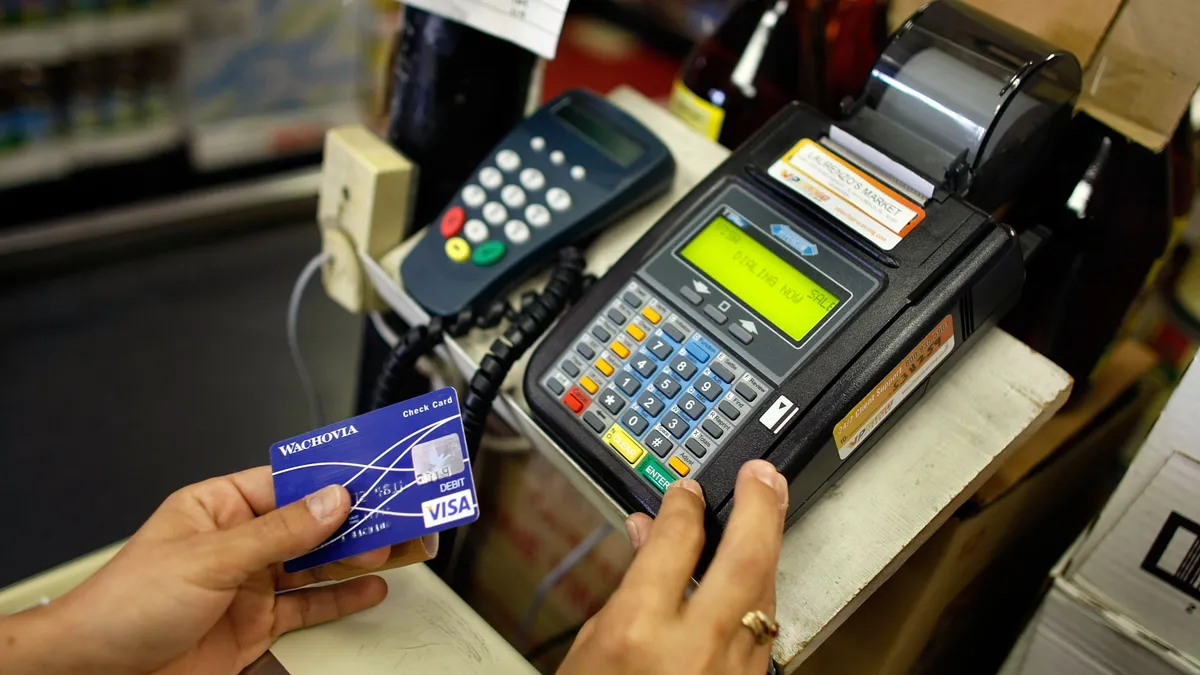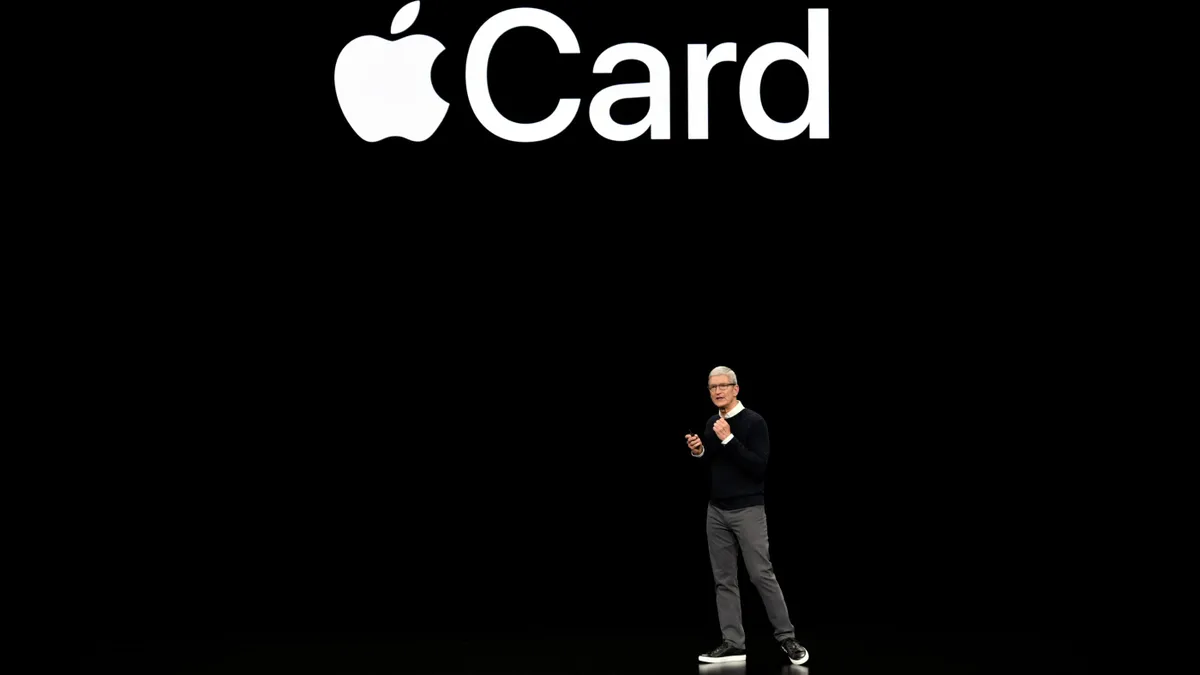PayPal, Bill Holdings and Block are among the payments companies most likely to be negatively impacted if President Donald Trump’s tariff war triggers a recession and curbs consumer spending, analysts said in recent reports.
As prices for imported goods rise, consumers typically spend less, generating less income for payments players that derive revenue from processing transactions, Morningstar analyst Brett Horn said in a report Monday.
Payments companies often earn a percentage of the transaction processed so fewer, or smaller, purchases means less money flowing to them.
Trump last week spearheaded a campaign to impose tariffs on U.S. trading partners, aiming to rebalance trade with countries that export more to the U.S. than they import. A Trump administration tariff of 10% on some countries’ imports took effect April 5, but then the president this week pulled back on most higher tariffs, except against China, after some countries retaliated and the U.S. stock market plunged.
There might be some limited benefit for payments companies if inflation persists and increases prices, pushing up transaction amounts, Horn suggested.
“Presumably, in a recession consumer spending is going to go down,” Horn said in a Tuesday interview. “One element that may be a little bit of an offset is if we get into stagflation, obviously, in a lot of cases, the revenue is tied to the size of the transaction.”
PayPal’s focus on e-commerce makes it more vulnerable than some other companies in the industry, Horn said. That’s because such digital spending is more discretionary, he explained. While San Jose, California-based PayPal provides some options for paying in stores too, Horn doesn’t consider that a major revenue source.
On another front, Oakland, California-based Block, and specifically its Square unit, as well as Atlanta processor Global Payments, also have businesses that are more susceptible because of their focus on smaller merchants, which tend to suffer or shutter more readily in an economic downturn, Horn said.
While PayPal also offers some services to small merchants, that’s not a significant part of its business so it’s less of a drag, he said.
“Small merchants tend to fail in larger numbers during recessions, so that becomes an additional headwind,” Horn said.
A PayPal spokesperson declined to comment while spokespeople for Global Payments and Block didn’t immediately respond to requests for comment.
Analysts at the research arm of financial firm Robert W. Baird had some similar observations in an April 4 report assessing risks due to the tariff upheaval and macroeconomic “scare,” but also offered some different takes. (They reviewed only companies they typically cover, excluding PayPal or Block.)
The Baird analysts also highlighted Global Payments as having some risk exposure because of its focus on servicing smaller merchants, but placed the processor in a “modest risk” category because its business is somewhat shielded by also catering to banks.
They placed Bill Holdings at the “higher risk” level because of its more direct catering to small and mid-sized businesses in providing payments and financial software services.
Other payments players the Baird analysts deemed “higher risk” are those involved in travel, hospitality and fuel expense payments management. In that category, they included corporate software company Corpay because of its sensitivity to foreign exchange currencies in cross-border payments, and fuel and fleet expense management firm Wex due to its sensitivity to gas prices.
As far as those facing the “least risk,” the analysts cited processor Jack Henry & Associates, because its payments services are largely delivered alongside other technology services to “stable” financial institutions, the Baird report said. Billing payments firm Paymentus was also less vulnerable because so much of its business is recurring, they said.
Morningstar’s Horn also named those payments firms focused on a bank clientele as less at risk, including Jack Henry as well as processor giant Fiserv and Fidelity National Information Services among those more insulated from a decline. That’s also because they sell services that are less tied to consumer spending, he said.
On the other hand, Fiserv disclosed in its recent annual report that it could be hurt if the cost of importing its point-of-sale hardware increases. A spokesperson didn’t respond to a request for additional comment.


















